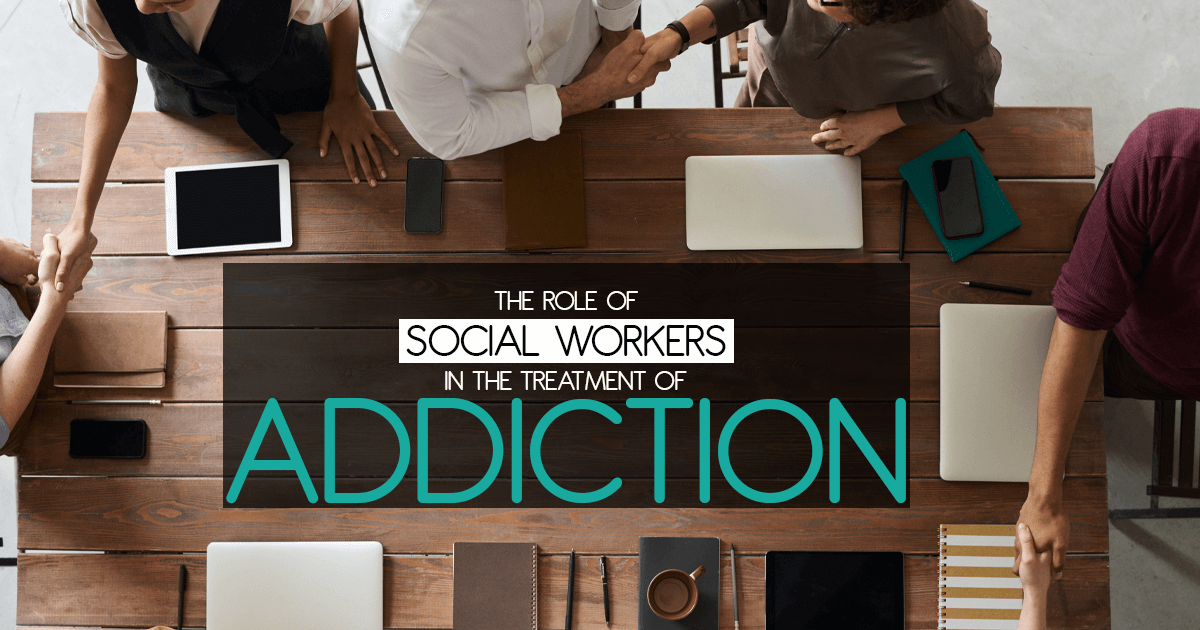Social workers have many roles and work with all types of people and populations. For example, the role of social workers in the treatment of addictions is an important one. Social workers can be a vital resource for people throughout each phase of addiction treatment and recovery from chemical dependency.
Substance abuse social workers can work in various settings, including private practice, a mental health center, or a community organization. Some have their own social work practice, or they may be affiliated with a halfway house.
What is a Social Worker?
Social workers are broadly committed to promoting social welfare and helping people from different backgrounds overcome challenges. Social workers are also advocates for economic and social justice. These are professionals who help children and adults during especially vulnerable periods of their lives.
- They can help identify solutions to complex problems and issues.
- These professionals also connect clients to resources to promote good mental health, end cycles of substance use and trauma, and create healthier individuals, families, and communities.
- Social workers are estimated to be the largest group of providers of mental health services in the U.S.
- According to the Mental Health Services Administration, they’re the only mental health care providers in many remote and rural communities.
Generally, the role of a social worker can include the diagnosis of clinical disorders, like substance use disorders, identifying client goals, and helping clients create a plan to reach those. Within this role, professionals can serve as a link between their clients and resources that will help them in various ways.
Some professionals specialize in the field of substance use disorder treatment. Other professionals might not specialize in the area but are still part of the treatment and recovery process.
- Many people with substance use disorders also have co-occurring conditions and illegal drug or prescription drug addiction.
- Co-occurring disorders can include dependence on multiple substances or the presence of a mental health disorder along with addiction.
- Social workers can help clients with complex needs, including co-occurring disorders.
- Co-occurring disorders with substance abuse issues can also include medical conditions.
- A social worker who specializes in addictive behaviors often understands a combination of psychiatry and psychology, as well as medical treatments.
- These understandings are also tied in with their connection to the safety net of social services in the local community and sometimes personal experience with addiction.
We talk more below about the specific ways how people in social work help alcoholics and people addicted to drugs and social work implications for substance abuse.

Understanding the Role of Social Work with Addictions and Treatment
Below are some specific elements of the role of social workers in substance abuse treatment programs, substance abuse facilities, and similar settings.
Clinical Counseling
Clinical professionals in social work can deliver counseling to people dealing with alcohol or drug addiction.
- Multiple factors often come together and give rise to addictions.
- A social worker can help someone undercover those factors like past trauma with therapy and clinical interventions.
- Treating addiction depends on getting to the root causes of the addiction itself.
- A social worker can help clients feel like they’re being heard without fear of judgment. This is critical to recovery.
- With clinical experience, these professionals can also help provide therapy related to drug or alcohol use and co-occurring mental health disorders, including depression and anxiety.
- These professionals can provide therapeutic counseling and interventions in a variety of settings. For example, they might work with clients one-on-one or facilitate group or family therapy.
- Often, people struggling with substance abuse experience breakdowns in their relationships. These relationships can include marriages and relationships with their families and children. Social workers can serve as mental health counselors, as individuals with substance use issues or mental health issues work to repair damage in relationships.
Assessment
A social worker can delve deep into a client’s unique history of substance use, trauma, and mental health disorders. They can do assessments to grasp the dynamics their clients face. For example, they can learn more about family history and possible triggers that contribute to substance use.
Professionals in social work are trained in socio-emotional and socio-economic issues that can either contribute to substance use or make matters worse.
Along with assessments for mental health disorders and the diagnostic criteria for substance use disorders, professionals in social work can also do reviews to ensure clients’ basic needs are being met. For example, do they have proper housing and food?
Their basic needs have to be met to receive treatment and reach recovery.
Developing Treatment Plans
A personalized treatment plan is one of the most important parts of overcoming addiction. A treatment plan has to be very tailored to the individual. No two people are the same. Their history, addictions, substance use, and physical and mental health are unique. That means for treatment to be effective, all of these things have to be taken into account.
Multiple professionals often create treatment plans because of how comprehensive they need to be. The treatment team may include doctors and psychologists as well.
Everyone comes together on collaborative creation and delivery of the treatment plan.
Maintenance
When you go to an addiction treatment program, you’re there for a set period. That time is critical. This is when you go through detox and withdrawal. You work through the underlying causes of your addiction. You start to discover what life might look like without drugs and alcohol during these early weeks and months.
That program inevitably ends, though.
Then, you’re faced with the real world as you navigate your new sobriety on your road to recovery.
A social worker can be with you on your path for the long term in some cases. For example, regular check-ins with a social worker may be part of the aftercare plan that your treatment providers create for you.
A social worker can help you put your coping mechanisms into place and deal with stress you perhaps weren’t facing in rehab.
Social workers can encourage you to participate in a 12-step program and can help you stay accountable to your 12-step meetings.
They can also help make sure that you continue treatment for any co-occurring mental health conditions and that you understand the next steps you need to take along the way. If necessary, they’re also often trained in crisis intervention.
Connection to Community Resources
One of the most critical steps these professionals can do for people dealing with substance abuse or recovery is to connect them with community resources. Social workers have a deep level of connection to a wide range of social services and safety nets in the communities where they work.
If you leave rehab, for example, and you don’t have a safe, drug-free home to return to, social workers can help you find housing or family services. They can help you if you’ve lost your job by connecting you with opportunities or vocational training.
For someone dealing with the fallout of legal issues because of drug addiction or alcohol dependence, social workers can help in this area as well.
Getting Help
When you have someone who can help connect you to community resources, then you’re going to be more likely to stay sober because you’ll have less stress you’re dealing with in the early days of your recovery.
This group of well-trained professionals plays an invaluable role in addiction treatment and recovery. If you’d like to learn more about treatment program options, we’re here and available to talk.
If you’re interested in learning more about addiction treatment options and resources, call the team at Silver Lining Recovery at 833-844-4769.

